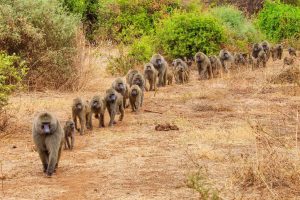The Maasai and Lion Conservation: Understanding the Facts
The Maasai people of East Africa have a deep connection to the land and wildlife that surrounds them. As one of the most iconic tribes in Africa, the Maasai have long coexisted with the wildlife that calls the region home. Lions, in particular, hold a special place in Maasai culture and tradition. However, the conservation of lions has become increasingly important as their populations continue to decline. Understanding the key facts and insights about the Maasai and lion conservation is crucial in order to protect these majestic creatures for future generations.
The Maasai and Lion Conservation
The Maasai have a long history of living alongside lions in harmony. In Maasai culture, lions hold great significance as symbols of strength, courage, and power. They are revered as symbols of protection and are often associated with leadership and bravery. However, as human-wildlife conflict increases, the Maasai are faced with new challenges in conserving lions and their habitats.
In recent years, the Maasai have taken a proactive approach to lion conservation by working with local and international organizations to protect these animals. Through community-based conservation initiatives, the Maasai have implemented measures to reduce human-lion conflict, such as building predator-proof bomas to protect livestock, conducting community outreach and education programs, and supporting anti-poaching efforts.
By engaging with the Maasai in conservation efforts, it is possible to create a sustainable future for both lions and the Maasai people. Through responsible tourism and partnerships with local communities, it is possible to support conservation efforts while also benefiting the local economy and empowering the Maasai people.
Key Facts and Insights for Understanding
- The Maasai have a deep cultural connection to lions and view them as symbols of strength and courage.
- Human-wildlife conflict is a major threat to lion populations, as increasing encroachment on their habitats leads to conflicts with local communities.
- Community-based conservation initiatives, such as predator-proof bomas and education programs, are essential in reducing human-lion conflict.
- Responsible tourism can play a key role in supporting lion conservation efforts and benefiting local communities.
- Engaging with the Maasai in conservation efforts can create a sustainable future for both lions and the Maasai people.
For those interested in learning more about the Maasai and lion conservation, Sunset Africa Safari offers a unique opportunity to experience Maasai culture and participate in conservation activities. To book a tour or for more information, please contact info@sunsetafricasafari.com.
In conclusion, understanding the facts and insights about the Maasai and lion conservation is essential in order to protect these iconic animals and preserve the rich cultural heritage of the Maasai people. By working together, we can ensure a future where lions and the Maasai can thrive together in harmony.


